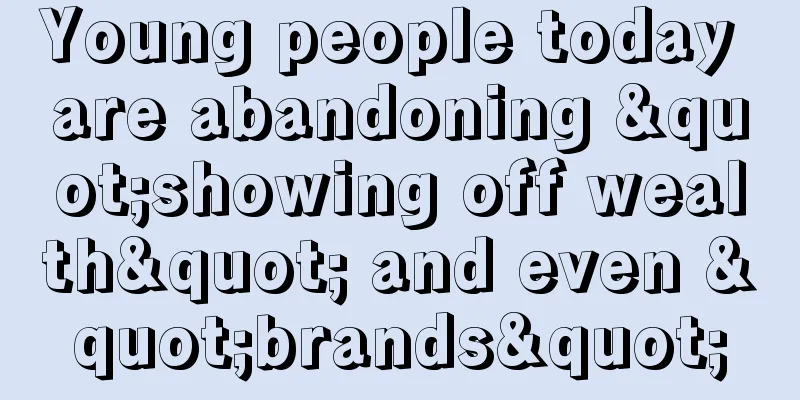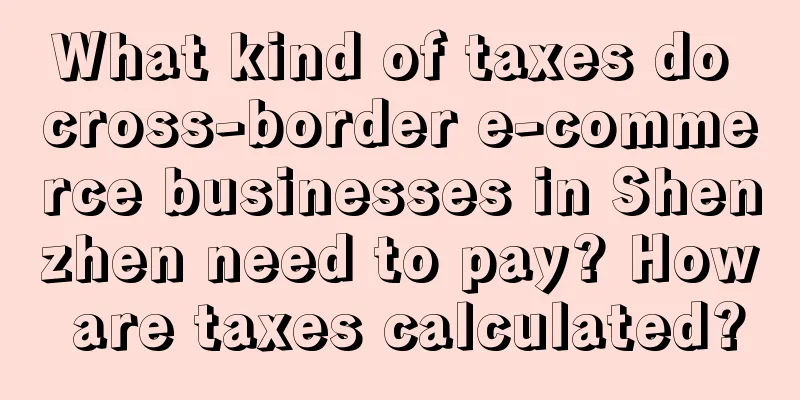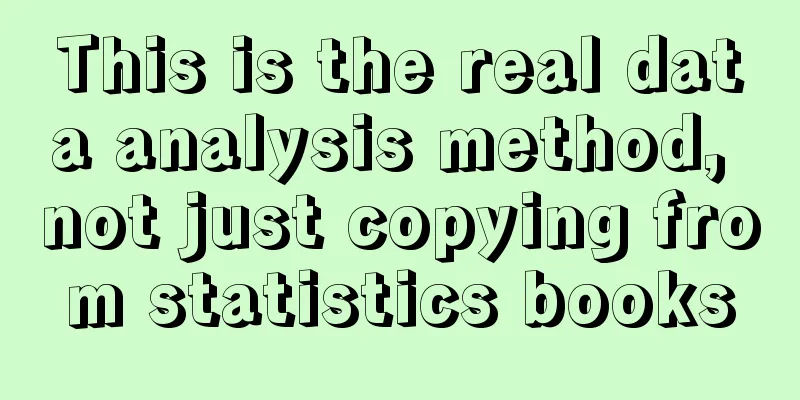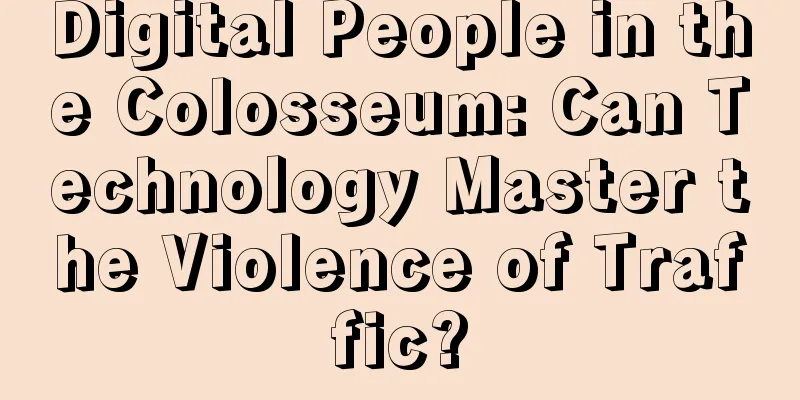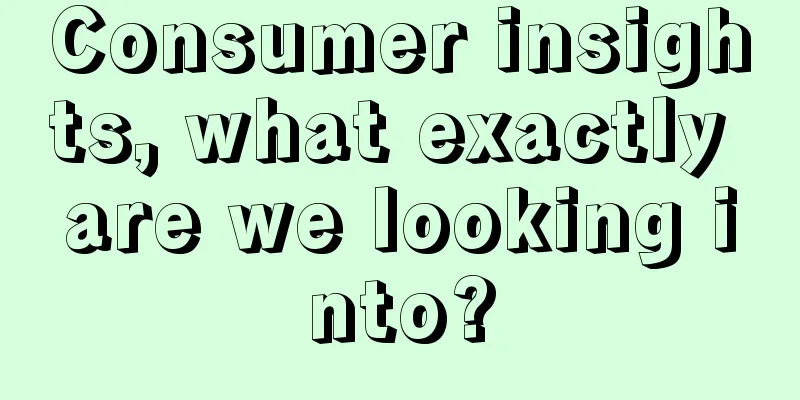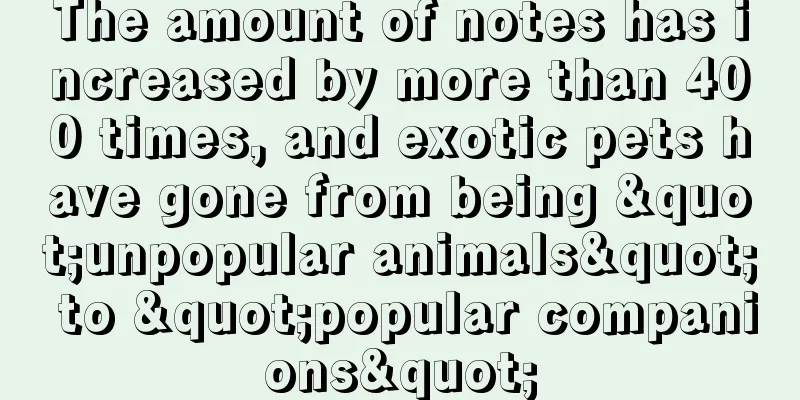What will happen if you don’t consume intentionally?
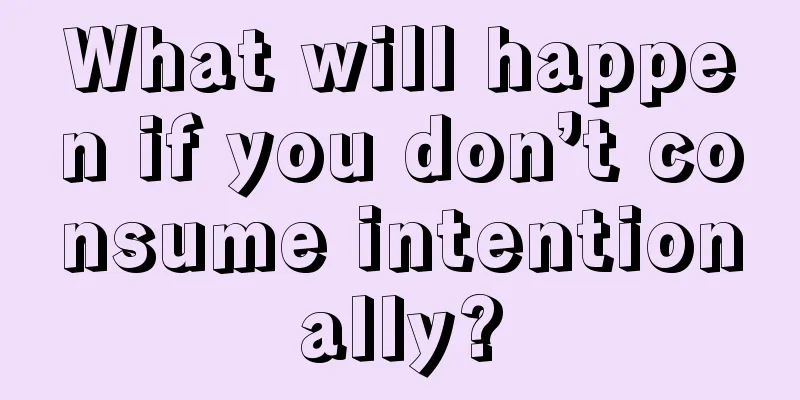
When my colleague stared at his phone and said the words "malicious non-consumption", I couldn't help but shudder: Am I exposed? Am I going to become a public enemy? Then, he added indignantly: "In my opinion, malicious non-consumption should be criminalized!" Hearing this, I fell into deep reflection and shed tears of regret: Yes, I am a bad person who does not consume. I neither buy a car with my annual salary nor a watch with my monthly salary (I have neither of these two things). I stick to the two famous brands of "Microsoft" and "Yahoo" when it comes to clothing. I resist the 38-yuan Starbucks and indulge in the 39-yuan high-end products. These behaviors are all fighting against the torrent of commodity society with my own strength, which can be described as a mantis trying to stop a chariot! Although "malicious non-consumption" is probably a spoof, and criminalization is a joke from colleagues, this article is by no means a clickbait title. I sincerely want to discuss with you whether there will be a day in the future when the behavior of opposing consumerism will be punished by social rules? Don't be happy yet! In fact, all "harming the public and enriching oneself" behaviors may be punished even if they are not malicious. Moreover, it is not without precedent to use the iron fist of the law to fight against similar behaviors! You will understand if you patiently read to the end. When that day comes, I may have to face a life behind bars as I am going further and further on the road of fighting consumerism! In order to stop myself from going too far, I want to write down my thoughts here and share them with you! 1. Consumerism is the wheel of social progressToday's society is completely different from that of my grandfather's grandfather: it is an agricultural society that has not changed much for thousands of years, and at most has experienced ups and downs with natural disasters and wars; but nowadays, if the GDP of a place remains stagnant, it would be like the sky has fallen, making economists and taxi drivers feel heartbroken! However, where does all this GDP, which has been growing year after year, come from? Is it because of the increased production capacity? It seems so, but it also seems to be putting the cart before the horse: if you produce so many things, someone has to buy them, right? Nowadays, my grandfather's grandfather would not even understand these bizarre products, let alone need them. Therefore, making people motivated to consume more and more goods is the root of growth! Take clothes for example. A hundred years ago, farmers would be satisfied if they had two sets of clothes to wash and change. But now, everyone has a double-digit number of clothes in their closet! Moreover, under the new consumption order, they all have their own functions, and if one is missing, they will feel itchy all over! And then there's bathing. When I was a kid, I went to a public bathhouse once a week and saw two types of toiletries: soap and washing powder. But in recent years, look at the giants of daily chemicals, how many scenarios have been broken down into for bathing, how many bottles and cans of hand soap, facial cleanser, shampoo for all hair types, body wash, conditioner..., and how many people have accepted the new concept of "taking a bath every day is good for both you and me". Physiologically, these may not be necessary; psychologically, none of them is indispensable! The key driving force behind the rapid development of commodity society is the continuous creation of these "psychological necessities". If we use underworld jargon to describe the shaping of the consumer market, it can be called "cutting cakes out of thin air"! 2. Where does the new consumer market come from?In order to continuously create "psychological necessities" and stimulate the demand of the whole society, what methods are there? In summary, there are only two ways. 1. Create a large-scale consumer product category that did not exist beforeWhen it comes to creativity in this area, Americans are truly unrivaled in the world; otherwise, they would be considered the leaders of capitalism! The most classic example of creating a new mass-market consumer product is none other than Ford a hundred years ago. Although cars existed before then, they became a personal means of transportation that every family in modern society desires. This consumption concept and the implementation of the industry are undoubtedly attributed to Ford. As for how much GDP growth the automobile industry has driven over the past 100 years, I don’t need to calculate it in detail, right? Moreover, unlike real estate, this is real consumption rather than investment! So, are cars really the best solution for human travel? Do you think it is an efficient solution for each person to carry a large iron shell weighing several tons on their backs and drift around on the road? However, these are not important. The key to the success of automobile culture lies in its strong demand-pulling ability! There is also such a masterpiece in this century, that is the birth of iPhone. Jobs redefined the mobile phone with his extraordinary imagination and product ability, and created a huge new market almost out of thin air. 2. Stimulate premium consumption through brand buildingThere is a thought-provoking point in the book "Manufacturing Consumers": Industrial production causes commodities to lose their individuality, but why do we feel that every commodity is so rich and colorful today? "Brand" solves this problem in a wonderful way! Brand as a weapon also flourished a hundred years ago, and the methodology of building a brand was invented by the giants who sold shampoo. The same shampoo that can be wholesaled at five yuan per kilogram in Guangzhou has been transformed into a huge product family due to the differences in flavors, foaming agents and softeners. With extensive publicity, it has become a unique brand with different functional positioning, and can then be sold smoothly at a price of fifty yuan a bottle! There is a book called "No Logo" which explains all the clever tricks in the process of brand building. You will be amazed if you read it! Of course, I don’t expect you to believe that all shampoos are basically the same - if that were the case, then the budgets of these brands would have been wasted! 3. “Malicious non-consumption” will eventually be punished!As mentioned above, all behaviors that "harm the public and benefit oneself" may be punished by society. Does malicious non-consumption count? If you spend less money, the driving force of the social wheel will be weakened a little bit; and you save money and accumulate wealth, and take a small step on the road of privately making a small sickle and making money with money, which is of course considered private gain! I let you go of a green leek and left a bunch of shiny sickles unused. Aren't you ashamed? If you look at it this way, the punishment for not consuming should not be said to have been warned! Let me tell you a little story and you will know that the punishment I am talking about is not groundless. Friends who often fly may know a money-saving secret called "abandoning a stopover ticket": sometimes, the cheapest ticket to Guangzhou is 1,500 yuan, but the ticket to Beihai via Guangzhou is only 800 yuan! (This phenomenon is quite common, and it is actually price discrimination based on supply and demand.) Then I might as well buy the latter one and get off in Guangzhou! Is that okay? It's really cruel! Logan, an American teenager, was going to North Carolina, but he booked an American Airlines flight from Florida to New York via North Carolina. However, when Logan was checking in, an American Airlines employee noticed his North Carolina driver's license. Faced with the other party's questioning, Logan was a little confused and had to confess: Yes, I am going to North Carolina! Just like that, Logan was taken to a small dark room, his trip was cancelled, and he faced lawsuits and compensation. We engage in price discrimination in order to make more money and stimulate social demand; you actually want to save money, isn't that anti-social? Is there any law? You can treat this little story as a joke. However, there are precedents in history for using social ethics and legal weapons to comprehensively crack down on certain harmless "harming the public interest for personal gain" behaviors! This is what the famous book "Work, Consumerism and the New Poor" talks about: society's ruthless attack on a small group of people who fight against the work ethic! In today's society, all adults with healthy limbs and normal intelligence should work hard to find a job and embed themselves in the big machine of social production - this is called work ethics. Today, we are accustomed to this, and even regard being unemployed at home as being like a full-time porn student. This is the new ethics of the times, and in fact, the idea of everyone working is only a history of more than 100 years. For those who do not accept this ethics, society has invented a very vicious word to call them: blind migrants. And blind migrants are a "dangerous class." I don't want to go to work, so what am I doing? That's not okay, you are just going against society! You need to be reformed! In addition to using education and public opinion tools to demonize not going to work as an immoral behavior, the book also mentions that society has actually organized a wealth of legal weapons for this purpose. Although it will not directly declare not going to work illegal, it can basically ensure that if you wander the streets all day, there will always be a way for you! You can read the book to find out how it is done. Modern prisons, which hold tens of millions of prisoners, are playing the role of retraining the workforce that opposes work ethics. "Every stage of society will create some dangerous images that threaten themselves" , and fighting against consumerism today is to trip up the social train, and it will inevitably "change from a social policy issue to a criminal law and penology issue." So, are you trembling, a small group of people who maliciously refuse to consume? Author: Big Data Rinpoche, Source: WeChat Official Account: "Computational Advertising" |
<<: Why do emotional pain points create cultural hits?
Recommend
High temperatures "heat up" young people's consumption
This article mainly discusses the phenomenon that ...
How to take advantage of Halloween's popularity? These 6 common tricks are worth reading!
This article starts with the characteristics of us...
How should enterprises choose the first stop when going overseas?
How should enterprises choose the right overseas s...
Where is the login entrance to Lazada Seller Center? Is it easy to place an order on Lazada?
The entry process for Lazada sellers is relatively...
Frisbees have been "abandoned", why has cycling become so popular?
What is your favorite way to relax? Nowadays, more...
How is it to work as a salesperson at Alibaba International Station? What are the advantages?
There are many people working in sales at Alibaba ...
The paid “game within a game” of a short drama worth hundreds of billions
Short dramas are popular recently, but viewers hav...
Do 3C products on Shopee need to be certified? How to upload products on Shopee?
We know that some e-commerce platforms require cer...
Is it profitable to open a store on Shopee? What is the process of opening a store?
It is still very common for individuals to open st...
Don't believe me, I watched "Meimei Du Ai Fo You" three times and I can't stop watching it
Some time ago, a series of secondary creation anim...
How to open an independent cross-border e-commerce website? How to promote an independent website?
With the continuous acceleration of the process of...
Application of Porter's Five Forces Model in Marketing
The author of this article describes how marketing...
How to use Shopee Zhixia? What are the tips?
Since the launch of Shopee cross-border e-commerce...
What are the fees for individual cross-border e-commerce? How can individuals do cross-border e-commerce?
With the rapid development of cross-border e-comme...
The "table-turning" Lao Xiang Chicken uses sincerity to gain trust
Pre-prepared meals have always been a topic of con...
